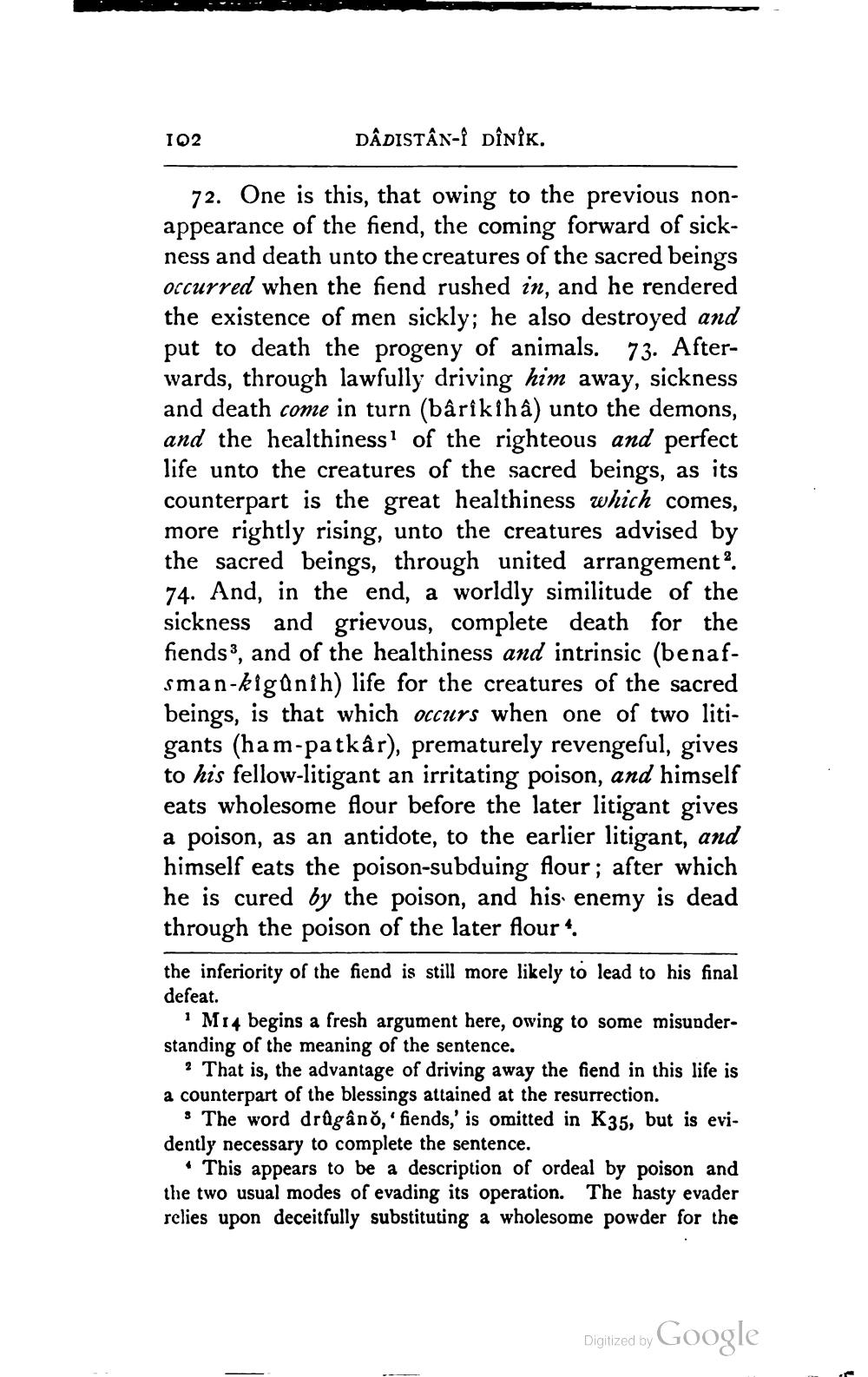________________
DÂDISTÂN-I DINIK.
72. One is this, that owing to the previous nonappearance of the fiend, the coming forward of sickness and death unto the creatures of the sacred beings occurred when the fiend rushed in, and he rendered the existence of men sickly; he also destroyed and put to death the progeny of animals. 73. Afterwards, through lawfully driving him away, sickness and death come in turn (bârîkîhâ) unto the demons, and the healthiness of the righteous and perfect life unto the creatures of the sacred beings, as its counterpart is the great healthiness which comes, more rightly rising, unto the creatures advised by the sacred beings, through united arrangement". 74. And, in the end, a worldly similitude of the sickness and grievous, complete death for the fiends, and of the healthiness and intrinsic (benafsman-kigûnih) life for the creatures of the sacred beings, is that which occurs when one of two litigants (ham-patkâr), prematurely revengeful, gives to his fellow-litigant an irritating poison, and himself eats wholesome flour before the later litigant gives a poison, as an antidote, to the earlier litigant, and himself eats the poison-subduing flour; after which he is cured by the poison, and his enemy is dead through the poison of the later flour.
102
the inferiority of the fiend is still more likely to lead to his final defeat.
1 M14 begins a fresh argument here, owing to some misunderstanding of the meaning of the sentence.
2 That is, the advantage of driving away the fiend in this life is a counterpart of the blessings attained at the resurrection.
The word drûgâno, 'fiends,' is omitted in K35, but is evidently necessary to complete the sentence.
This appears to be a description of ordeal by poison and the two usual modes of evading its operation. The hasty evader relies upon deceitfully substituting a wholesome powder for the
Digitized by
Google




